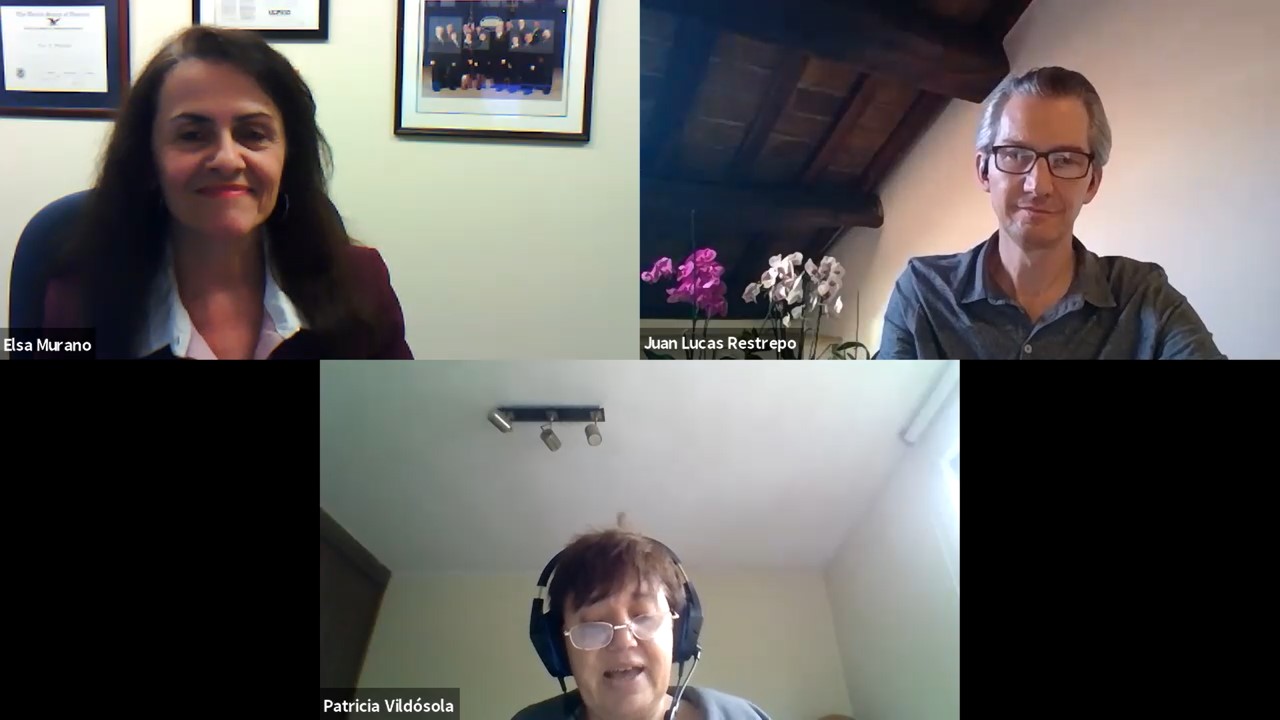Elsa Murano, former U.S. Undersecretary of Agriculture for Food Safety, and Juan Restrepo, Director General of the Alliance of International Bioversity – CIAT, assessed what value chains would need to guarantee food security in the Americas.

San Jose, 20 May 2020 (IICA). Expanding the use of biotechnology in food production, providing producers with access to improved seed varieties, enhancing connectivity in rural areas and increasing investment in research and development will all be fundamental to strengthening agricultural value chains in the aftermath of Covid-19.
This was the assessment provided by Elsa Murano, former United States Undersecretary of Agriculture for Food Safety, and Juan Restrepo, Director General of the Alliance of International Bioversity–International Center for Tropical Agriculture (CIAT), in the most recent webinar organized by the Inter-American Institute for Cooperation on Agriculture (IICA).
Murano and Restrepo expounded on the technological innovations that would be required or that are already available to respond to the post-pandemic challenges that agriculture in the Americas will have to face.
“Prior to Covid-19 technology gaps already existed in the region. Digital tools will be required to restore distribution channels – technologies that improve the efficiency of food production to make better use of agricultural products and surpluses, and others that ensure health, safety, quality and traceability”, said Murano, who is currently the director of the Norman E. Borlaug Institute for International Agricultural of Texas A&M University.
Restrepo recommended that the countries of the Americas institute agricultural policies with a strong consumer focus. He explained that in the aftermath of the pandemic, promoting more diverse agrifood systems, improved seed varieties and a regulatory framework to govern their use, as well as increased digitalization and extension services will be critical.
The Director General of the Alliance of International Bioversity–CIAT explained that, “The best way of working to assist the producer is to focus on the consumer. We have to recognize the crucial importance of diets as well as the nutritional value of the food on the consumer’s plate – bearing in mind diversity and the limitations of the planet”.
As discussed in the seminar, which is available at www.iica.int, digitalization will ensure that research can be conducted at a lower cost, with the ability to utilize citizen science and to experiment directly in the field with scores of varieties and thousands of producers interacting in real time.
Murano and Restrepo emphasized that the current health emergency “is becoming a food crisis”, which should prompt governments in the Americas to recognize and place the necessary importance on the agriculture sector.
The main topic of the next seminar in the series organized by IICA will be repercussions on international trade and sanitary regulations post-Covid-19. The event will take place on Thursday, 21 May at 4 p.m. (Costa Rica time).
It will be streamed from the Institute’s Virtual Conference Room and IICA’s Facebook, YouTube and Instagram accounts.
The presentations from previous seminars are available for comments and discussion on the IICA Blog – “Cultivating Tomorrow’ Agriculture Today”: https://blog.iica.int/en
Upcoming seminars:
Repercussions on international trade and sanitary regulations post-Covid-19 \ Thursday, 21 May
Livestream from FB Live, Youtube and the IICA Virtual Conference Room: 4:00 p. m. Costa Rica time.
Cassio Luiselli, former Advisor on agricultural development to the President of the Republic of Mexico.
Anabel González, former Minister of Foreign Trade of Costa Rica.
Supply, family farming and short circuits post-Covid-19 \ Tuesday, 26 May
Livestream from FB Live, Youtube and the IICA Virtual Conference Room: 4:00 p. m. Costa Rica time.
Post-Covid-19 from the perspective of Caribbean countries | Thursday, 28 May
Livestream from FB Live, Youtube and the IICA Virtual Conference Room: 4:00 p. m. Costa Rica time.
More information:
Federico Villarreal, Director of Technical Cooperation, IICA.
federico.villarreal@iica.int











